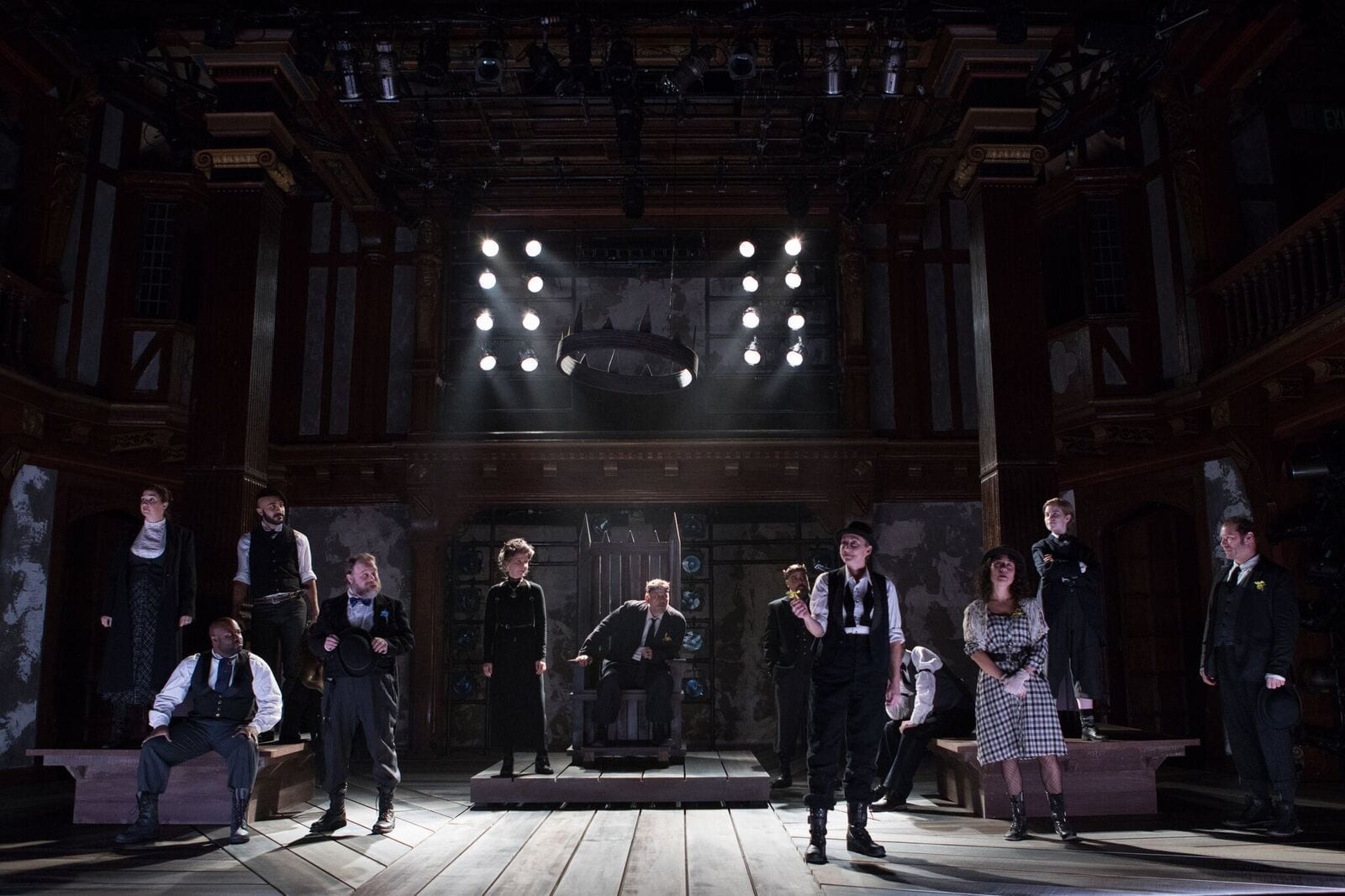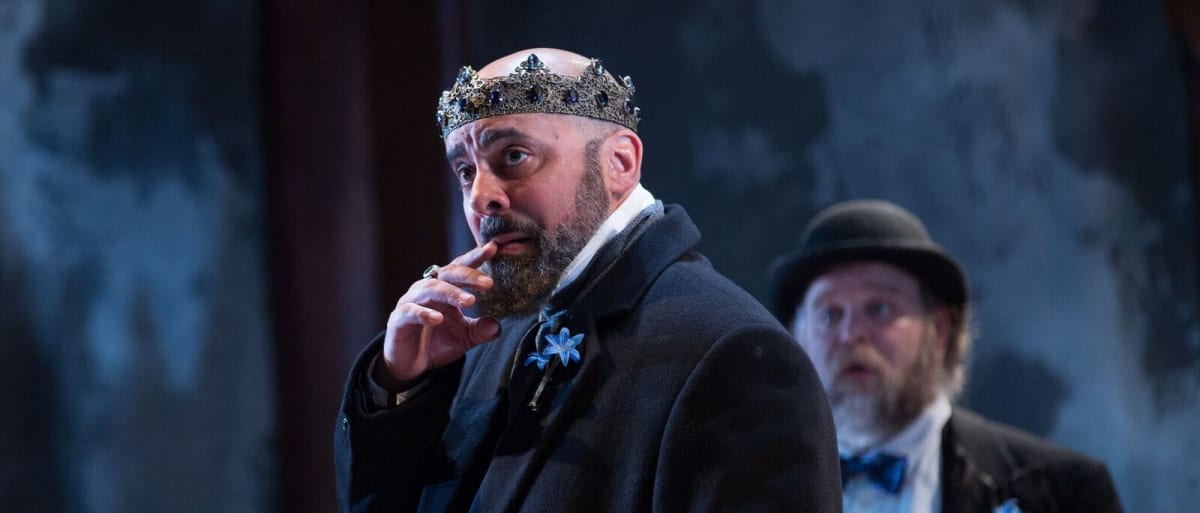For anyone who has experienced any of the performances of Shakespeare’s great works, many (including myself) often forget that King John is often overlooked and very rarely performed. It’s not surprising to understand why this is the case, since its first performance in modern times was a screen adaption in 1899. Unless you are a scholar of Shakespeare, you wouldn’t be familiar with this secreted gem, rich in language, with individual characters each flawed and complicated and Shakespeare’s own shrewd commentary on the politics and history of his day.
The Folgers Theatre current performance of this little known play, King John, takes head on the many layered plots and subplots of behind-the-scenes political secret deals, family loyalties gone astray, and the legitimacy of royal succession from father to son. Everyone involved in this shifting undercurrents of power have their own agenda and views, that may be legitimate, yet flawed in their execution.
The story focuses on the death of King Richard ‘the Lionhearted” and his younger brother John, who has gained his throne as the next King of England. His daring move is questioned by the King of France, as well as John’s own sister-in-law Constance, mother to the true heir Arthur. Against a sea of suspicion, illegitimate heirs, and questionable royal succession, John maneuvers his way through a minefield of ruthless opponents, religious and governmental politics, and family corruption and dysfunction which threatens the kingdom and his right to sit on the throne.

Director Aaron Posner uses the intimate space of the Folger and his cast to bring the audience into the heart and tragedy of this story. The stripped-down set with its lone bare wooden throne set on high, a tilted crown handing above the head of the King, speaks visually that all is not what it seems, bringing the audience into the subconscious of King John’s inner turmoil. Posner’s excellent use of his entire cast performing as “medieval” minstrels in the play’s opening minutes provides the audience an overview of their individual personal motivations and connections to the King and the unwise ride they can expect at any given turn of events.
However there is more to this production than the excellent direction and staging that lifts it onto the list of great Shakespearean performances; it is the casting. Brian Dykstra as King John shows us a different side of what a noble king is expected to be. Dykstra’s king is slightly nebbish and slovenly in appearance, projecting a comical impression that he is playing the part of a pretender, yet his personal paranoia slowly seeps out as his rule is questioned, showing his true duality when holding onto his power and position.
Helen Hayes Award-winners Kate Eastwood Norris and Holly Twyford offer incredible performances showing the polar opposites of royal succession and its potential problems. Kate Eastwood Norris’s Philip Faulconbridge is the bastard son of King Richard, who shows his gain in status as the acknowledged royal bastard with a seat at the table of power. Twyford’s Constance, mother to the heir apparent, shows how promises and alliances created are not able to stand up to sly political backroom deals which destroy dynasties before they begin. Her show-stopping speech of grief and betrayal on the death of her son, hits every emotion cell head on.
Along with Sarah Cubbage’s unique and funky 70’s influenced costuming, this Folger’s production of King John is a must for any Shakespeare fan. It can only be hoped that other productions of this play will soon appear providing more of Shakespeare’s work to all who crave it.

